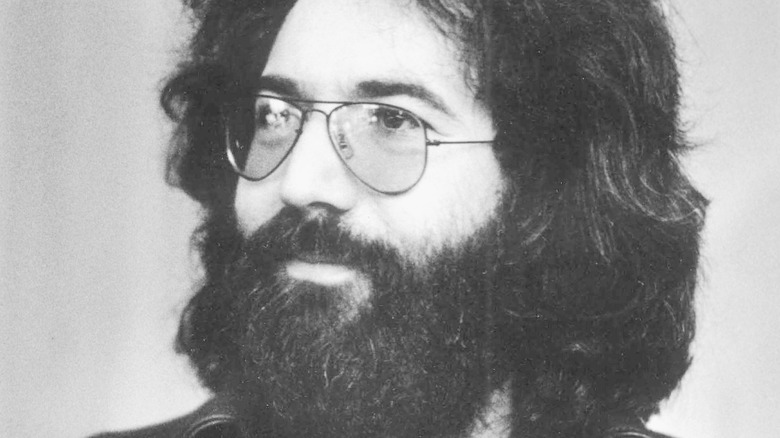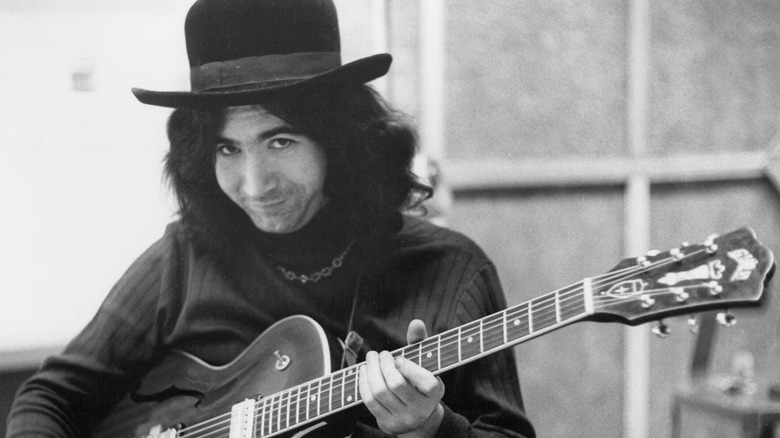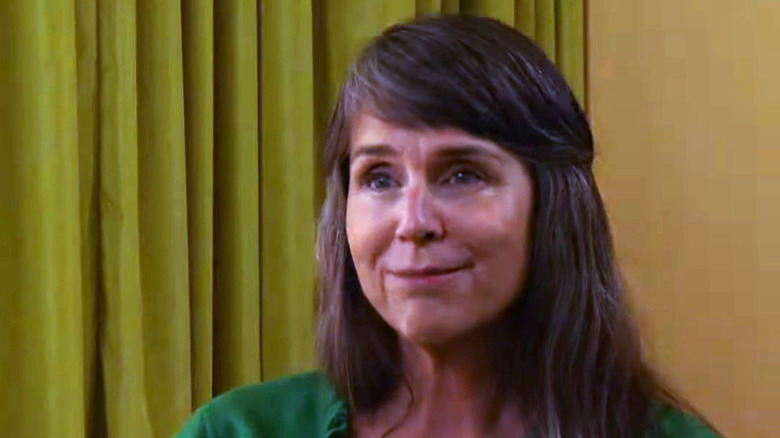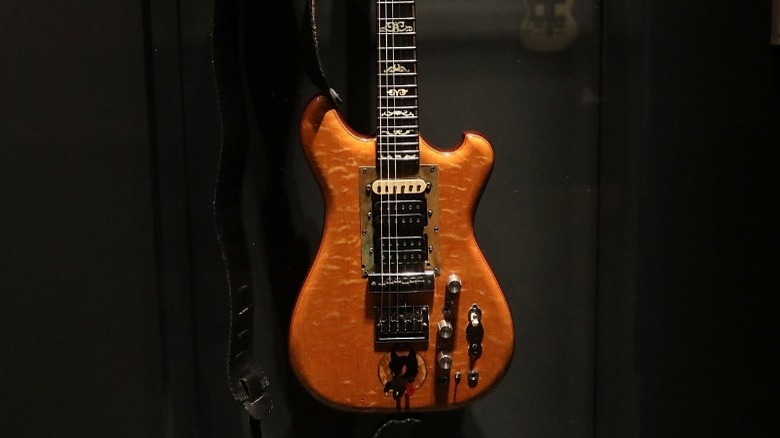Here's Who Inherited Jerry Garcia's Money After He Died
In 1965 one of the most pivotal musical groups of the 20th century would come together in Palo Alto, California. The band that would soon be known as the Grateful Dead was composed of Bob Weir, Ron "Pigpen" McKernan, Phil Lesh, Bill Kreutzmann, and fronted by the now legendary Jerry Garcia (per Dead.net)
They played their first show as the Grateful Dead at one of Ken Kesey's infamous Acid Tests in December 1965. But as their fame grew they never fully left behind the drug culture from which they emerged. By the '70s, band leader Jerry Garcia was addicted to heroin, an addiction that would plague him for the rest of his life (via Northpoint Recovery).
Garcia tried to get help for his addictions and checked himself into a drug rehab clinic in 1995. It was while he was a patient in that clinic that he suffered a heart attack and passed away at the age of 53. Usually, death is the end of a story, but in this case, it was the beginning of a long legal battle between his family, friends, and bandmates.
Complicated personal life
Jerry Garcia married his first wife, Sarah Rupenthal, in 1963, according to NNDB. Heather Garcia, his first daughter, was born later that year. That marriage couldn't survive the tumultuous lifestyle of drugs and touring and they were divorced in 1967 (via Chicago Tribune).
In 1966 Garcia began his relationship with Carolyn Adams, a Merry Prankster who also went by the name of Mountain Girl. With her, Garcia had two daughters: Anabelle, born in 1970; and Theresa, born in 1974. A year later, Garcia ran off with a filmmaker named Deborah Koons.
His relationship with Koons lasted only two years. In 1981, Garcia and Adams married but it was a marriage of convenience entered into for tax purposes between two sets of a New Year's Eve show (via SFGate).
In 1986, Jerry Garcia began a relationship with Manasha Matheson, a woman he had met at a concert in 1978. They had a daughter in 1987 named Keelin. He left Matheson in 1992 when she made him choose between her and drugs (via SFGate).
The next year he asked Adams for a divorce so he could marry Deborah Koons, with whom he had reconnected. They were married in February 1994. Garcia died 18 months later in August 1995 (via NNDB).
The will
Jerry Garcia's will is a fairly straightforward document. It was drafted in 1994 and names eight people among whom his estate is to be divided, (via Living Trust Network). All of his personal items (books, furniture, jewelry, etc.) go to his wife, except for four custom guitars made by Douglis Irwin, those he wished to return to their maker.
Next, the will makes provisions for the continuation of child support payments for his youngest daughter, Keelin. The will also explicitly mentions settlement agreements made with Carolyn Adams and Manasha Matheson that are to continue being paid.
After all this, the will stipulates that his wife, Deborah Koons will receive one-third of his estate. The remaining two-thirds were to be divided into six portions. One-fifth to each of his daughters Heather, Anabelle, Theresa, and Keelin; one-tenth to Adams' daughter Sunshine from her relationship with Ken Kesey; and one-tenth for his brother Cliff.
The women left behind
In 1993 Jerry Garcia and Carolyn Adams agreed to a divorce. Adams drafted a one-paragraph agreement that stipulated Garcia had to pay her $5 million over the next 20 years. Two years later Garcia was dead and his widow ceased all payments to Adams.
The argument made by Koons Garcia was that the written agreement between Garcia and Adams wasn't a valid contract under California law. Further, it was argued that Garcia was so under the sway of his addiction at that time, that he didn't know what he was signing. The judge disagreed and deemed the contract enforceable. Koons Garcia appealed the decision but ultimately settled out of court for over $1 million (via New York Times and Ticker Law).
In 2007, Garcia's youngest daughter sued his estate, claiming that child support payments promised in the will were mismanaged. That dispute was settled in 2008 without disclosing the settlement terms (via Grateful Dead News).
The guitars
In 1972 Jerry Garcia met guitar maker Douglas Irwin in Sonoma, California. Garcia was instantly enamored of the guitars and bought one on the spot, as well as placing an order for a custom guitar. That custom guitar came to be known as Wolf and was played by Garcia through 1979. Garcia immediately ordered another one called Tiger. Irwin made two more guitars for Garcia, Rosebud in 1989, and Wolf Jr. which was never used live (via SFGate).
In his will, Garcia stipulated that, rather than being disbursed as part of his estate, the guitars should be returned to their maker. Garcia's band, The Grateful Dead, had other ideas. They maintained that all band instruments were the property of the band and not the individual members. The band and Irwin settled their differences out of court by splitting the four guitars between the two parties. Irwin received Wolf and Tiger and the band kept Wolf Jr. and Rosebud.
Irwin went on to sell the two guitars at auction. Wolf sold for $700,000 and Tiger for $850,000. Both sales were higher than the previous record paid for a guitar (via SFGate).
How things stand
At the peak of litigation involving Jerry Garcia's estate, there were over $50 million in claims, although when the dust settled the final valuation was just under $10 million. Koons Garcia says that of those $50 million in claims, she only paid out less than $1 million after negotiations and settlements (via Hackard Law).
All litigation has been resolved except for a squabble over the rights to master recordings that Garcia made. The legal drama began in 2001 and continues until today with Garcia's widow on one side and his children on the other (via Courthouse News).
Although the litigation over how much he was worth has been settled, his legacy still continues to make money for his heirs. The Grateful Dead still put out remastered recordings of classic shows and the Cherry Garcia ice cream flavor made by Ben & Jerry's is still being made today as are neckties based on his artwork. And not least, his music will never be forgotten.





